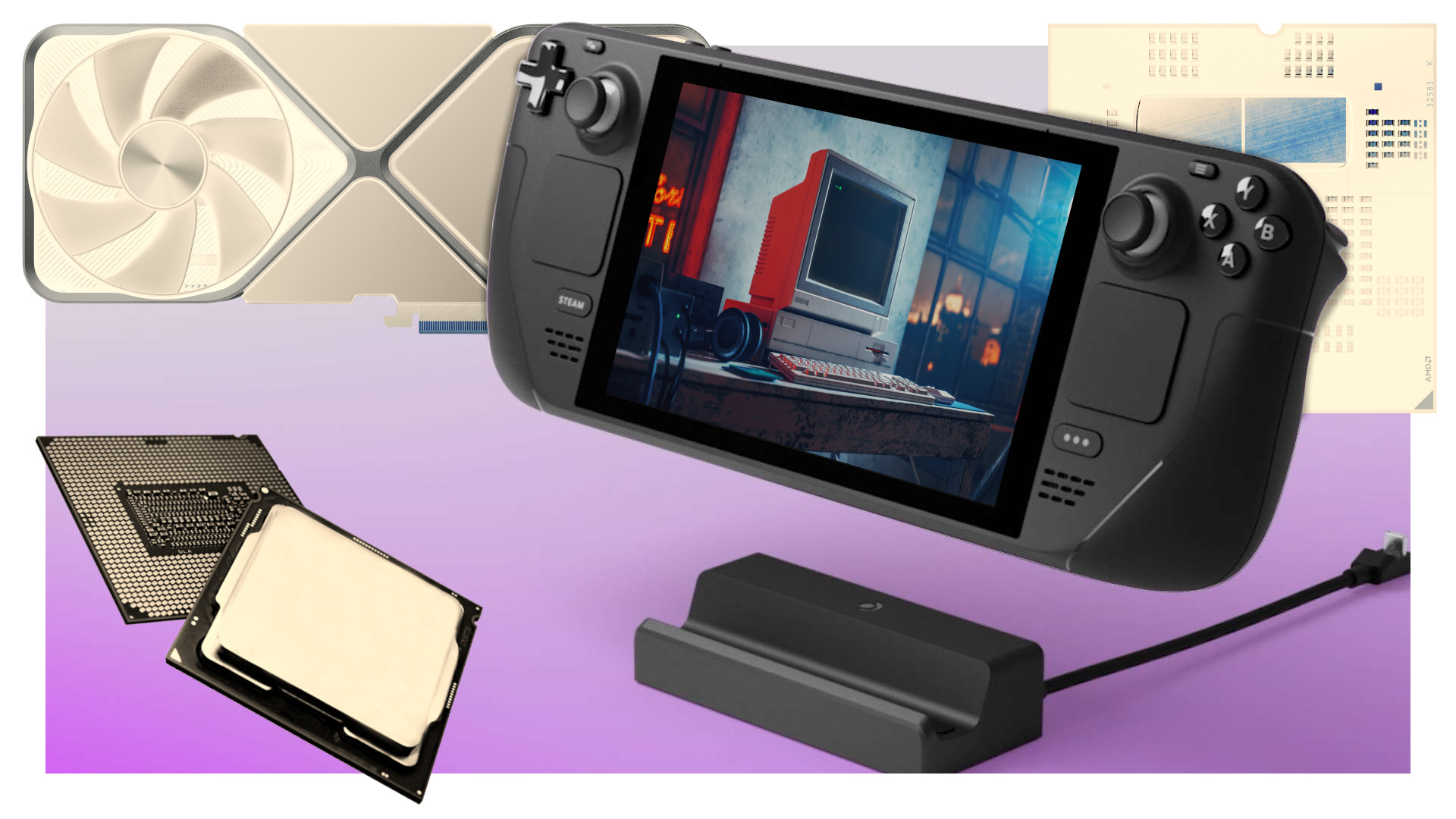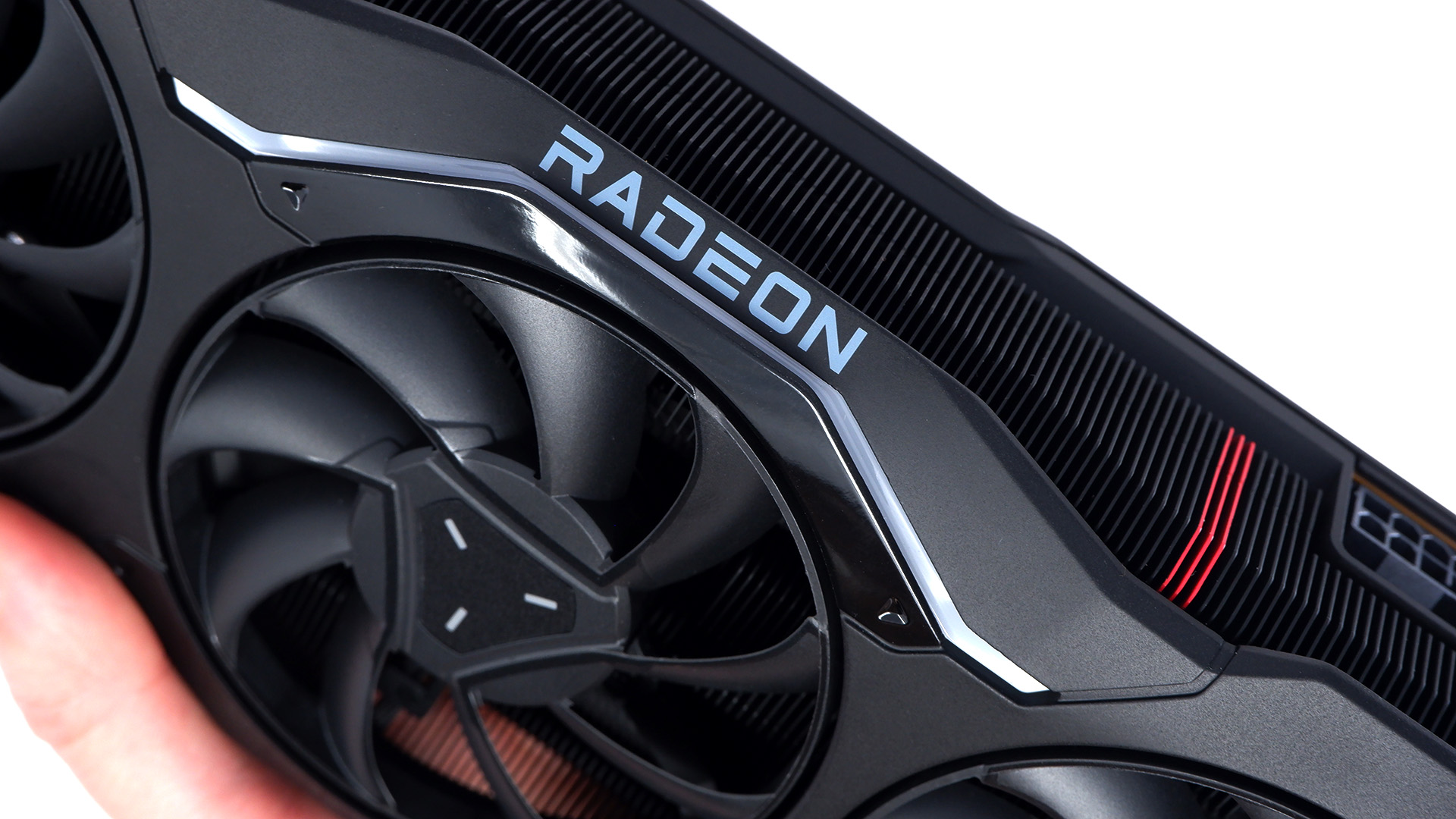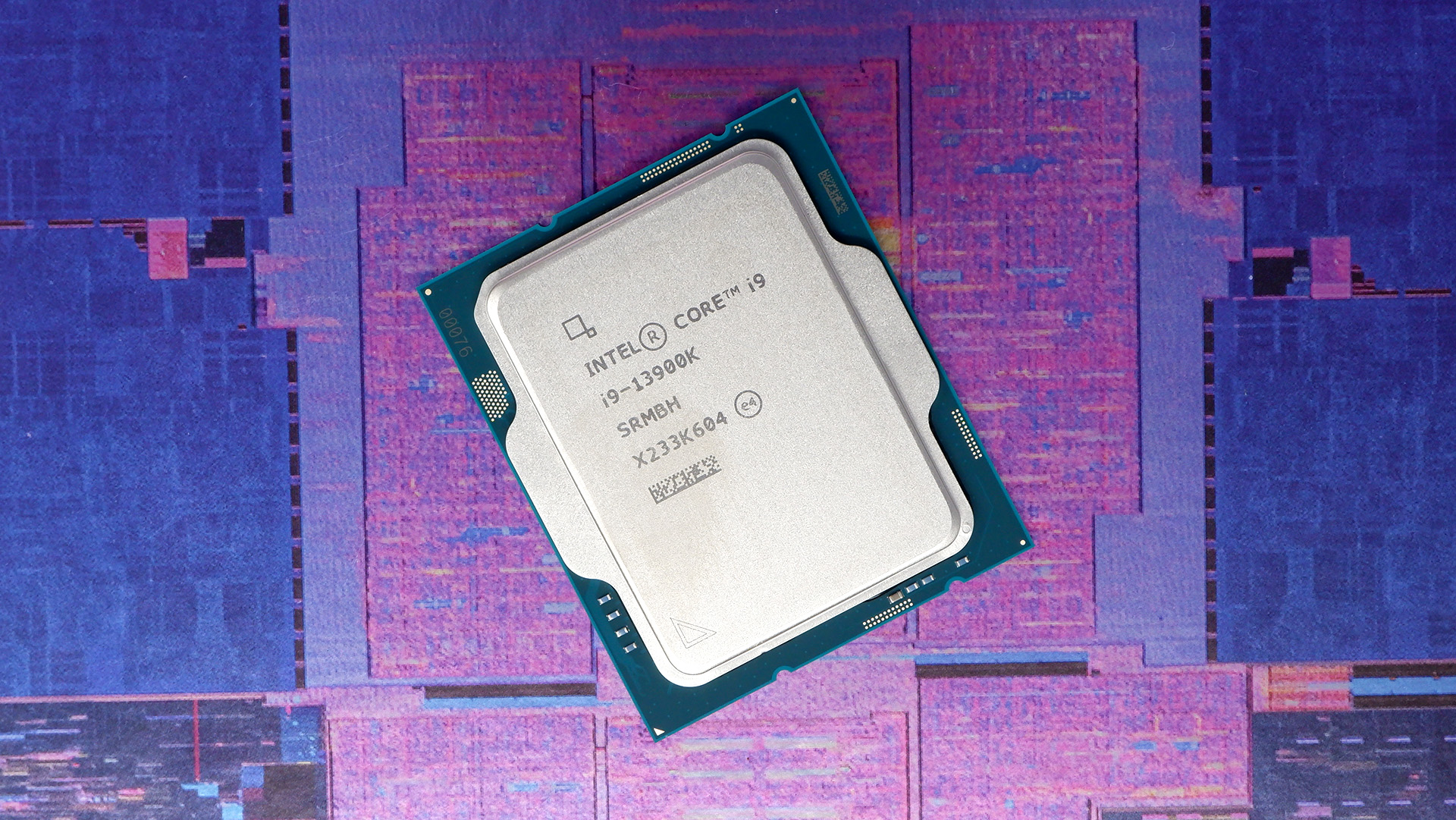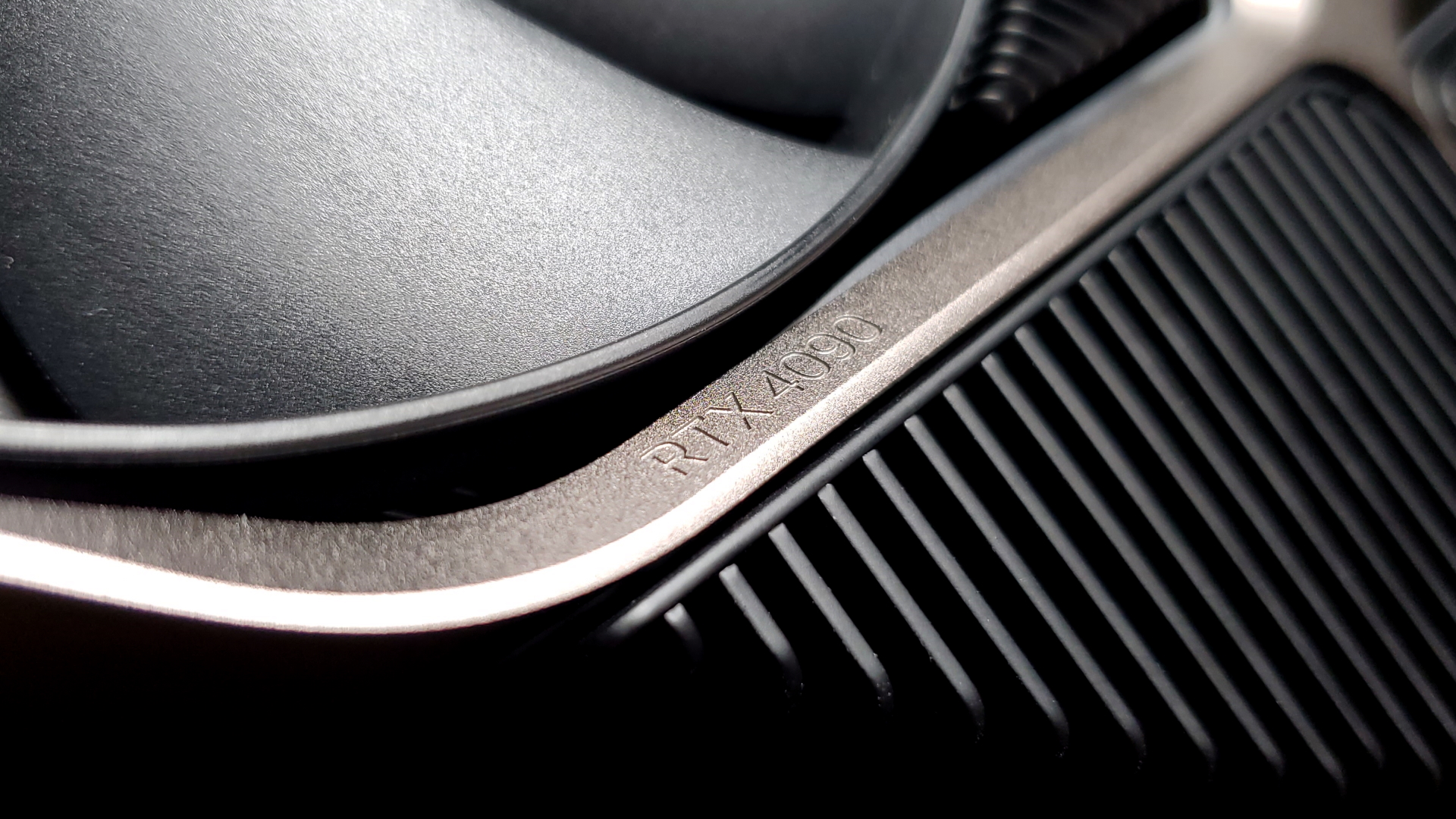In this, the blandest year for PC gaming tech only Valve took a risk
You could argue that there have been advances at the highest end of the market, but that's of zero relevance to the vast majority of PC gamers.

There's a new colour for PC gaming hardware in the year 2022. Black is out, RGB is so passé, and, sorry Mollie, it ain't pink either. No, the new colour is beige. Just plain, boring, faceplant-my-keyboard dull beige. That's what the biggest PC gaming companies have introduced in this tedious year of tech, the blandest, beigest hardware.
I'm honestly struggling to generate much enthusiasm for the tech I've seen this year. There's been little that's honestly surprising, at least not in a good way. It all feels like companies going through the motions with super-expensive this, ultra-enthusiast that. What cost of living crisis?
For me, only Valve's Steam Deck has dared to take a risk on doing something different and at a price point that most gamers are kinda able to get on board. The rest? Expectedly iterative steps on what's gone before.
In previous times AMD has been one to play on its underdog status and its reliably fervent reddit following to generate a lot of goodwill around its launches. And, honestly, rightly so. Without the resurgent AMD we would still be buying quad-core, eight-thread CPUs for $300 and bitching about it.
Nvidia has historically come in at the other end, as a dominant player releasing new and exciting hardware that quickly becomes the object of desire for a majority of PC gamers.
And sure, both companies have released new architectures this year, but only the RTX 4090 represented anything like a genuine, gen-on-gen step forward, though still for an entirely exorbitant and prohibitive price.
AMD's Zen 4 chips brought a new production process to the fore, delivered on a new AM5 socket, and yet feel as iterative an upgrade as you would have expected from a new Intel processor range circa 2015.
Keep up to date with the most important stories and the best deals, as picked by the PC Gamer team.
Its new RDNA 3 graphics cards ought to be exciting and yet I cannot muster any enthusiasm for them. Jacob likes the look of the new Radeon reference shroud, but to me it still looks like any other triple-fan GPU from PNY or Palit. But the RX 7900 XTX and RX 7900 XT have got a new chiplet design… which is honestly more exciting for AMD shareholders looking for increased margins than graphics card aficionados looking for increased performance.

At one point it looked like we might see AMD taking the first risks on a multi compute chiplet GPU design, packing many more cores into multiple dies within a single package, but alas that doesn't seem to have made it out of the labs. As impressive as it is that AMD has created a functional chiplet design, the fact it's invisible to the end user is both a blessing and a curse. On one hand, wow, chiplets work! On the other, it's just a slightly faster GPU that costs a lot of money.
As I said before, the RTX 4090 is the only card of this era that looks like a genuine step up. And with the introduction of Frame Generation upscaling has taken a step forward, too. But the increased pricing (even if it is in real terms a price cut given the unprecedented level of inflation around right now) doesn't feel like the company is trying to offer anything different. It's ultra-enthusiast hardware, as out of reach and irrelevant to most PC gamers as ever.
You could, however, argue that Nvidia has taken a big risk with its RTX 4080 card. Most especially that RTX 4080 12GB version. Taking a risk that gamers would absolutely eat up a low-spec GPU because its clock speed increase, and the magic of DLSS can deliver higher performance than last-gen cards. The risk backfired, however, because gamers weren't prepared to suck on that particular pipe and Nvidia quickly changed tack, "unlaunched" it and we're now expecting it to be relaunched as an RTX 4070 Ti early next year.
But it seems gamers haven't been that willing to deal with the flawed RTX 4080 positioning either, leaving them on the same shelves now also weighed down by unwanted RX 7900 XT cards.

And Intel? Well, Raptor Lake is great as CPU generations go, but it is fundamentally a refresh of Alder Lake on a slightly tweaked Intel 7 node, just with more of those funky E-Cores thrown in. But honestly, it's hard to get as excited about that as we were about the big changes brought in by Alder Lake.
Those Intel graphics cards did eventually turn up, in itself a risk simply as a project, but given how flawed they are the fact that Pat and Raja didn't decide to do something a little more interesting with them feels like a miss. They're already likely running at a loss, so why not just accept the hit and ship out the A770 for $250 a pop. At that price you'd happily accept that at some points it would outperform far more expensive cards, and at its worst perform as a $250 card.
What we got was overpriced and underperforming.
What about laptops? Razer hasn't changed its chassis in three or four generations, Asus has maybe tightened up its Zephyrus G14 design, but otherwise it's all rather the same as last year. How beige...
You might say I'm being far too harsh. There has been great new technology this year, and if you'd dropped a ton of cash on your rig in 2022, there's a chance you've got some of it lurking inside your PC. But realistically all the limited innovation that's been on show has been at the rarefied, ultra-enthusiast end of the market, where $1,000+ price points are de rigueur. And that, honestly, makes it fundamentally uninteresting for most of us PC gamers, especially at a time of increased economic hardship.

Valve's been a bit of a hero in a year that otherwise pandered exclusively to the moneybags ultra-enthusiast crowd.
Every launch has felt increasingly tone deaf in that regard. No company has made even the most tentative outreach towards mainstream gamers. Except one.
In the end, only Valve has done anything different this year, only Valve has actually taken a risk and offered gamers something tangibly great without gouging a vast hole in their bank accounts to do so. Only Valve has taken a risk in releasing brand new tech in a category that has historically done nothing for anyone else. The Steam Deck arrived in a handheld gaming segment dominated by a single Nintendo console, and backfilled on the PC side by no-name Kickstarter brands selling low volume, mildly janky products at ultra-enthusiast pricing.
Valve's been a bit of a hero in a year that otherwise pandered exclusively to the moneybags ultra-enthusiast crowd. Sure, the 512GB version is $649, but there are cheaper 256GB and 64GB versions at $529 and $399 respectively, and apart from the level of storage (and a case with the big boi) the underlying hardware is identical across the board. Jam a cheap, high-capacity SD card into the 64GB version and it might be slow to load, but it'll game as well as the $649 Deck.

I have to agree with Dave here. Valve absolutely smashed it with the Steam Deck and it handed the Steam mobile app a much-needed revamp, too. Would I have liked to see a little more from Valve on the VR front this year? Yeah, for sure. It's all been far too quiet a year for the Valve Index, and I feel Meta's been running away with much of the market despite one fairly major slip-up in 2022: increasing the Quest 2's price tag. There should be more on the VR front next year with Valve's Project Deckard, so maybe I'm getting ahead of myself.
And it's good. I mean, Valve just does good things. It has grown to such a size that it only ever has to release the things that it really stands behind, and can simply kill the things that Gabe doesn't unreservedly love. I would be willing to bet there are at least two almost entirely finished versions of Half-Life 3 buried in some Bellevue vault.
The Deck itself is a finely balanced piece of PC gaming tech; not too expensive, but still impressively capable of playing the latest games, and also incredibly versatile. Wes basically said it was tantamount to a Leatherman multi-tool. It can almost be whatever type of PC you want it to be.
I even spent a week using it as my office PC in a way that no Linux machine has ever really managed before. Normally I'd hit some sort of technical roadblock that would have me running back into the cold embrace of Windows in a trice. And where maybe we'd have previously been restricted to making the argument that a console is your best bet for modern gaming without the $1,000+ price tag, with the Deck there's something versatile and unmistakably PC to recommend.
We've had a couple of also-rans, with both Razer and Logitech offering up other visions of handheld PC gaming, but neither confident enough to present anything other than a chonky mobile phone with pretentions to game streaming built around GeForce Now and little more.
Looking back now, 2022 was an insipid year of PC companies either treading water, or at best laying technical foundations that won't benefit gamers for years. And no one other than Valve has really taken a risk in delivering something tangibly and functionally new.

Dave has been gaming since the days of Zaxxon and Lady Bug on the Colecovision, and code books for the Commodore Vic 20 (Death Race 2000!). He built his first gaming PC at the tender age of 16, and finally finished bug-fixing the Cyrix-based system around a year later. When he dropped it out of the window. He first started writing for Official PlayStation Magazine and Xbox World many decades ago, then moved onto PC Format full-time, then PC Gamer, TechRadar, and T3 among others. Now he's back, writing about the nightmarish graphics card market, CPUs with more cores than sense, gaming laptops hotter than the sun, and SSDs more capacious than a Cybertruck.
- Jacob RidleyManaging Editor, Hardware

